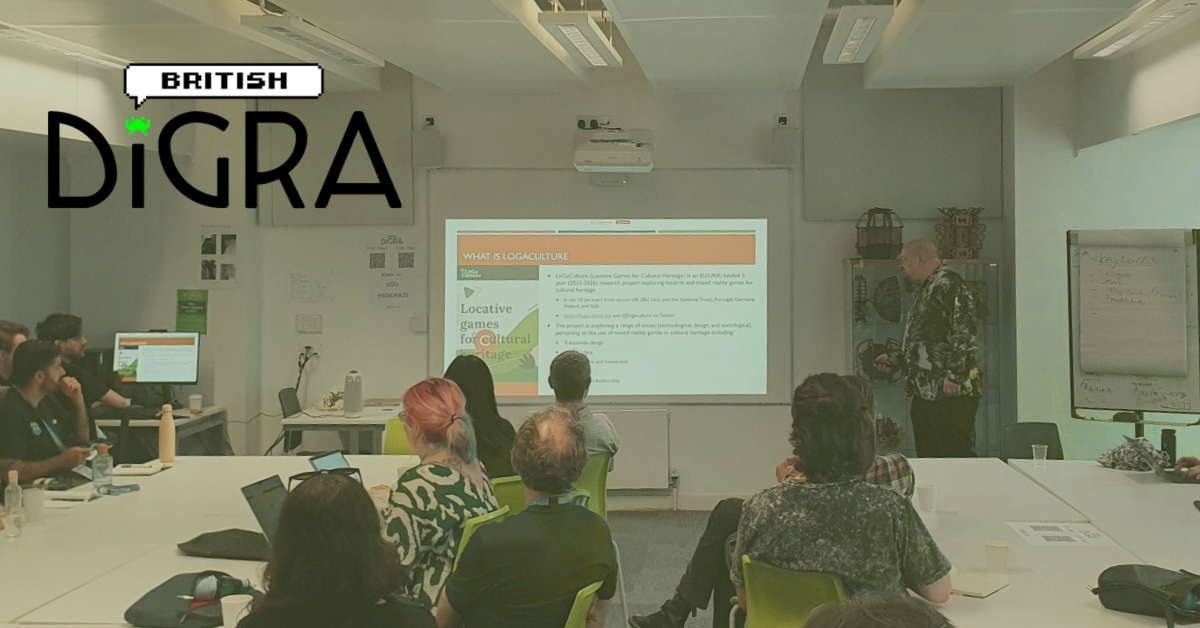At this year’s British DiGRA — or Digital Games Research Association — conference, held at Birmingham City University on 20–21 May, Professor Charlie Hargood presented LoGaCulture’s latest work at the intersection of digital games, heritage, and place.
Speaking as part of a national conversation on What is British Games Research?, Hargood spotlighted the project’s unique contributions to cultural heritage through mixed reality game design, particularly highlighting the LoGaCulture Unity Toolkit/Engine (LUTE) and the collaborative anthology of games being developed and set at the Avebury World Heritage Site.
LoGaCulture’s work stands at the forefront of place-based game experiences that combine technological innovation with cultural storytelling. Central to this is LUTE, an open-source authoring environment that empowers creators to design mixed reality cultural heritage games. Built around a flexible flow engine, LUTE enables developers to construct games using a node-based structure, where each “scene” contains declarative content for gameplay, UI, and media — ideal for telling richly layered stories tied to physical locations.
As part of his talk, Hargood shared insights from the LoGaCulture game anthology created for Avebury, one of Britain’s most iconic Neolithic sites. These games explore how interactive narratives can deepen public engagement with the history and atmosphere of place, making the past more tangible through play.
In a conference themed around the tensions between the local and the global in British games research, Hargood’s presentation reinforced LoGaCulture’s commitment to grounded, culturally situated game-making — demonstrating how tools like LUTE can serve both scholarly exploration and public engagement.
